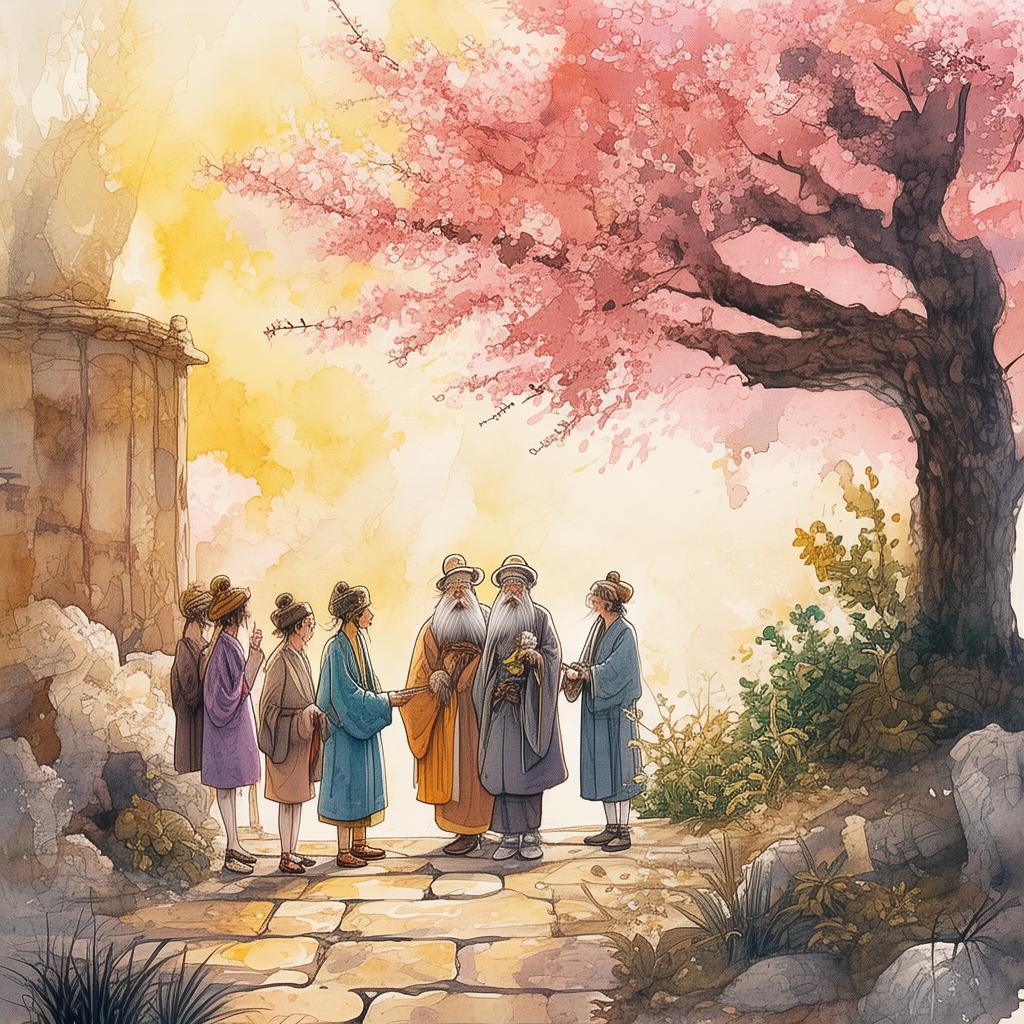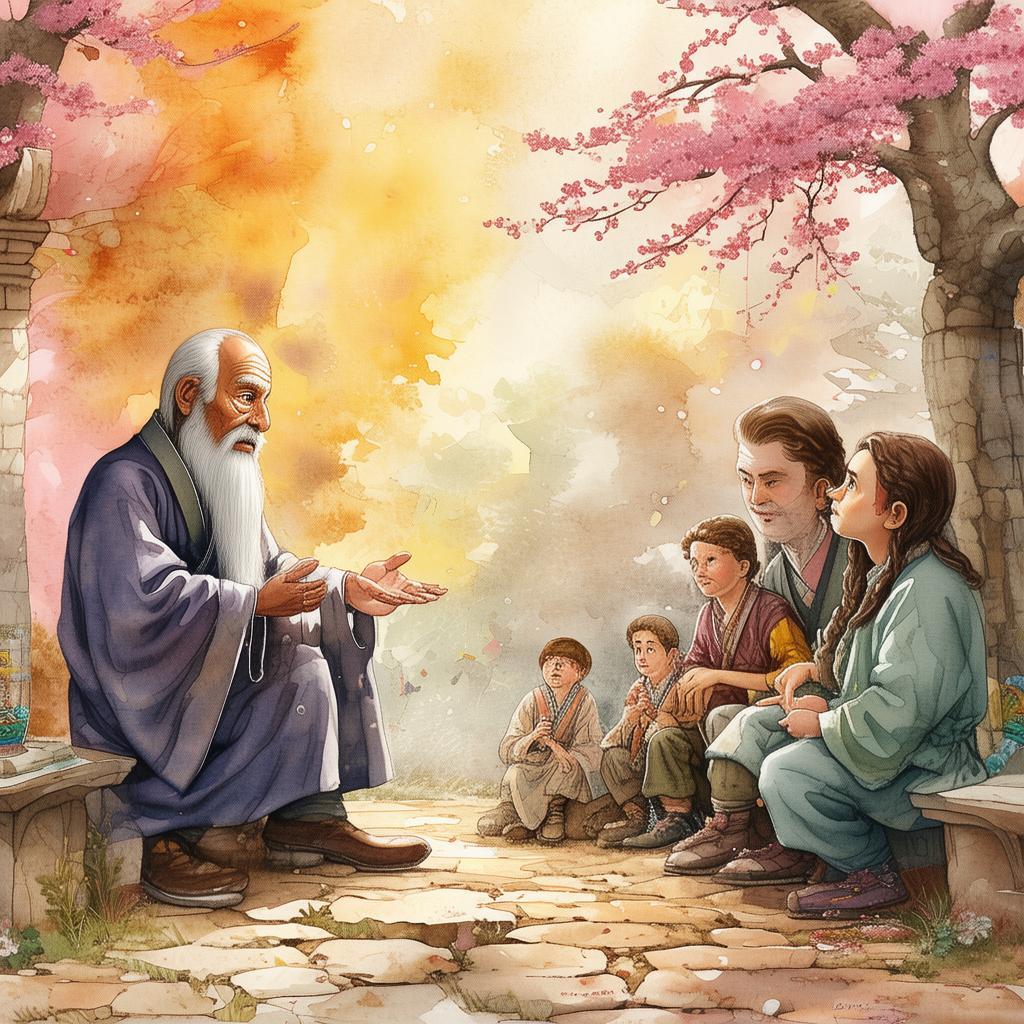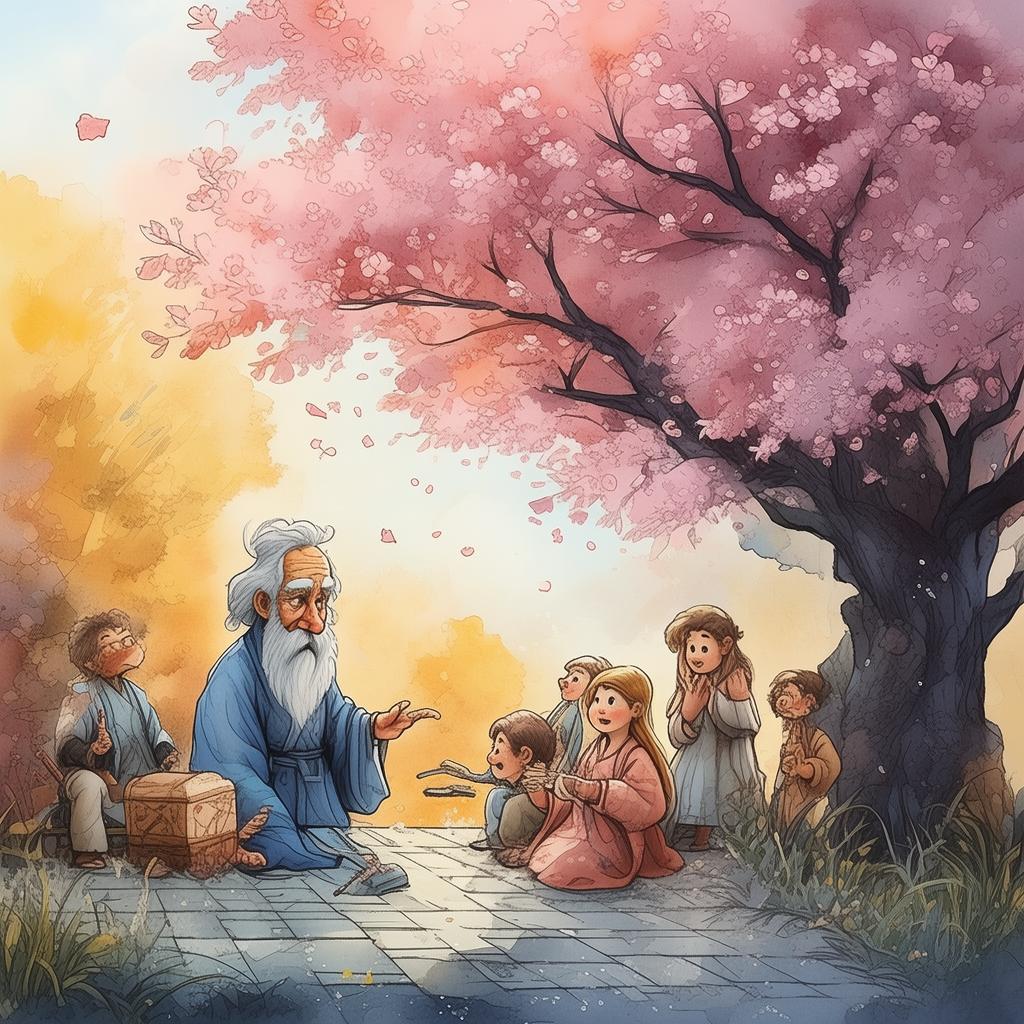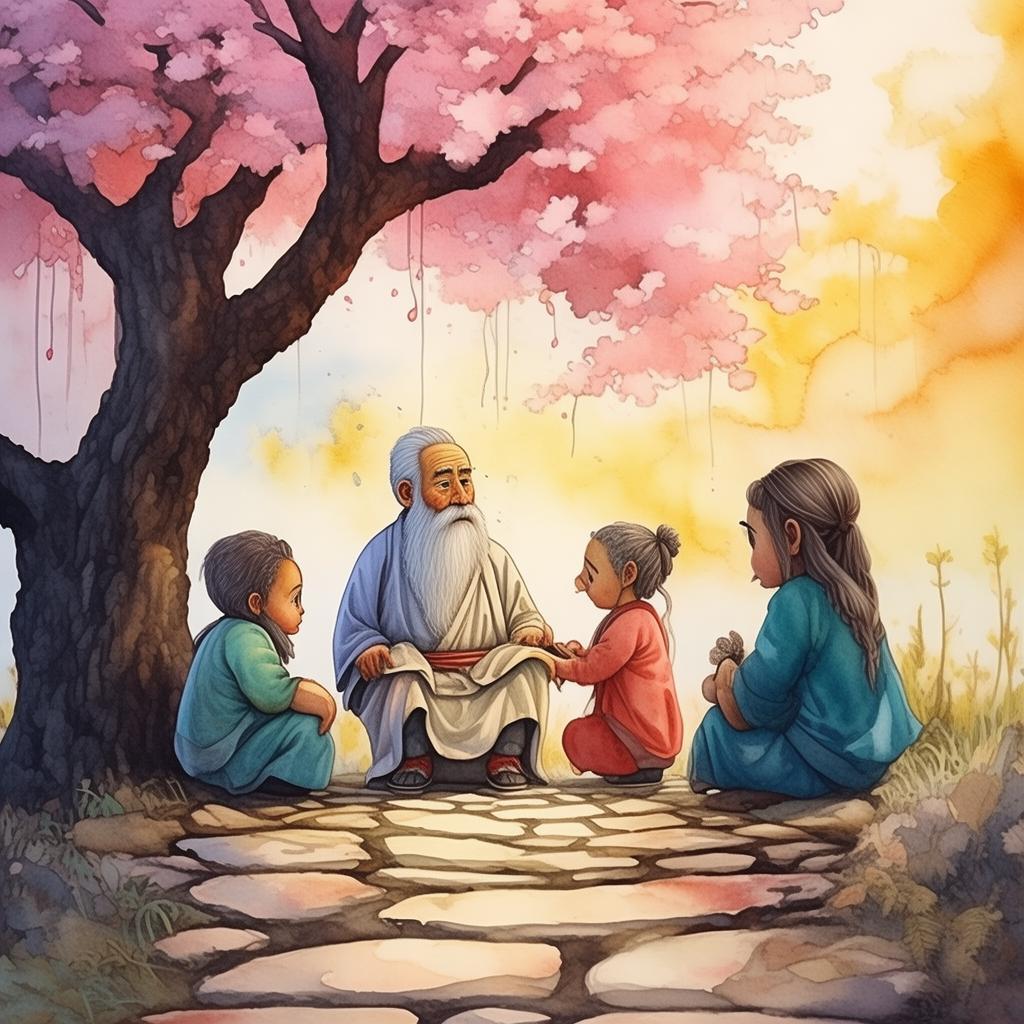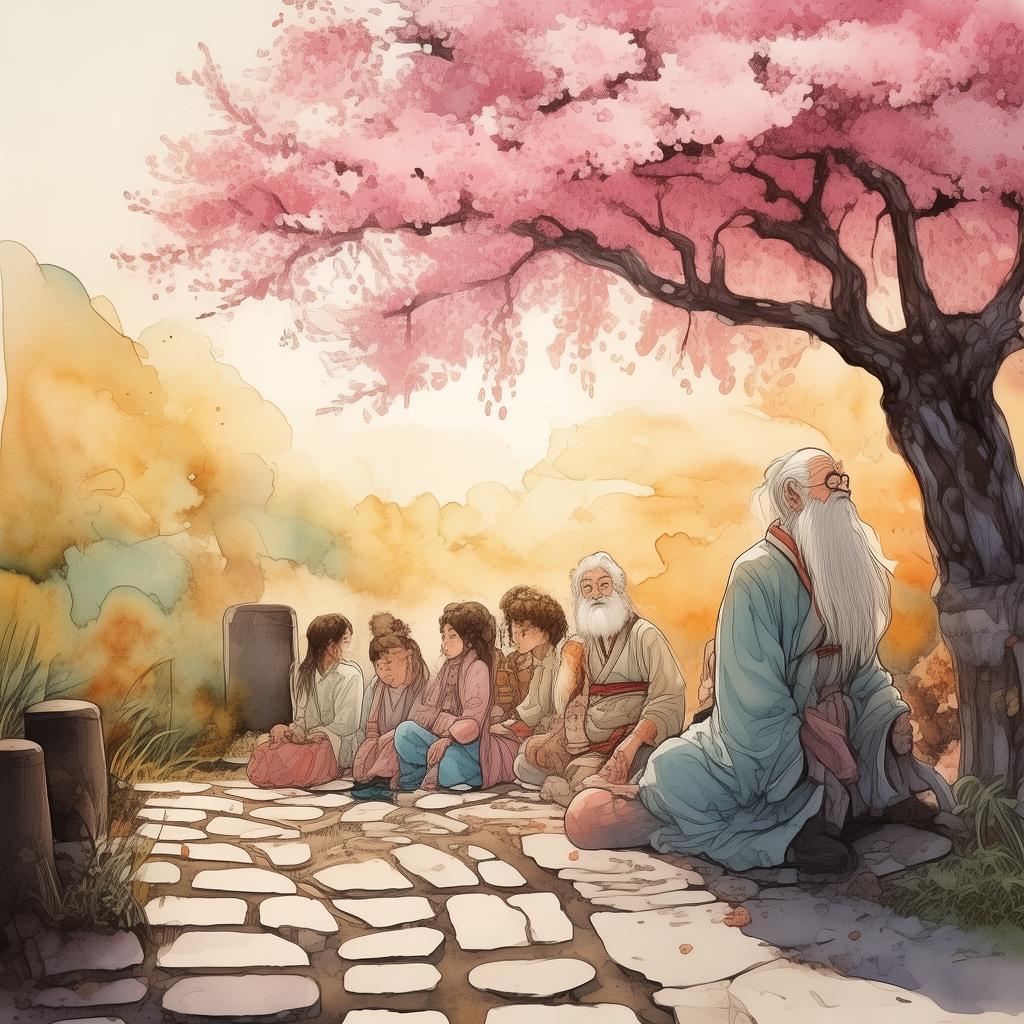Heavenly Reckoning: The Four-Headed Wizard's Fourteen-Heaven's Enchantment
In the heart of ancient China, where mountains reached the heavens and the rivers sang ancient songs, there lived a wizard of great renown, known as the Four-Headed Wizard. His name was Ming, and he was the keeper of the oldest and most powerful enchantments known to man. Among these enchantments was the Four-Heaven's Enchantment, a spell so potent that it could alter the very course of fate.
Ming had spent his life studying the ancient texts, mastering the arts of divination and the manipulation of elemental energies. But there was one spell that remained beyond his grasp—the Four-Headed Wizard's Fourteen-Heaven's Enchantment. This spell was said to have the power to reshape the heavens and earth, to bind the will of the gods and to bend the very essence of reality to one's command.
The enchantment was forbidden, for it was believed that its use would bring chaos and an imbalance to the cosmic order. Yet, Ming was drawn to its allure like a moth to flame. He was a man of great ambition and a desire to leave an indelible mark on the world. The Fourteen-Heaven's Enchantment promised to grant him dominion over the universe.
One fateful day, Ming discovered an ancient scroll in the hidden library of his temple. It contained the incantation for the Fourteen-Heaven's Enchantment, written in an arcane script that spoke of celestial energies and forbidden rituals. He knew that to perform this spell, he would have to undergo a series of trials that would test his very soul.
The first trial was to purify his heart. Ming spent weeks in meditation, seeking to cleanse his desires and ambitions. But as the days passed, he found it increasingly difficult to let go of his thirst for power. The longer he meditated, the more he was haunted by thoughts of the immense power the enchantment would grant him.
The second trial was to prove his loyalty. Ming was to choose between two loyal disciples, each of whom had dedicated their lives to serving him. He knew that whichever he chose, it would be a betrayal to the other. In the end, Ming chose his most skilled disciple, Xiao, who had been by his side since childhood.
The third trial was to face his own mortality. Ming was to enter a realm of shadow and fire, where the demons of his past would confront him. It was a place of endless suffering and despair, where he would have to confront the darkest aspects of his soul. He emerged from this trial with a newfound appreciation for life, but also with a lingering sense of dread.
The final trial was to perform the actual enchantment. Ming stood atop the highest peak, overlooking the vast expanse of the empire below. He recited the incantation, his voice echoing through the heavens. The world around him seemed to shift, and the very fabric of reality began to weave itself into a tapestry of power.
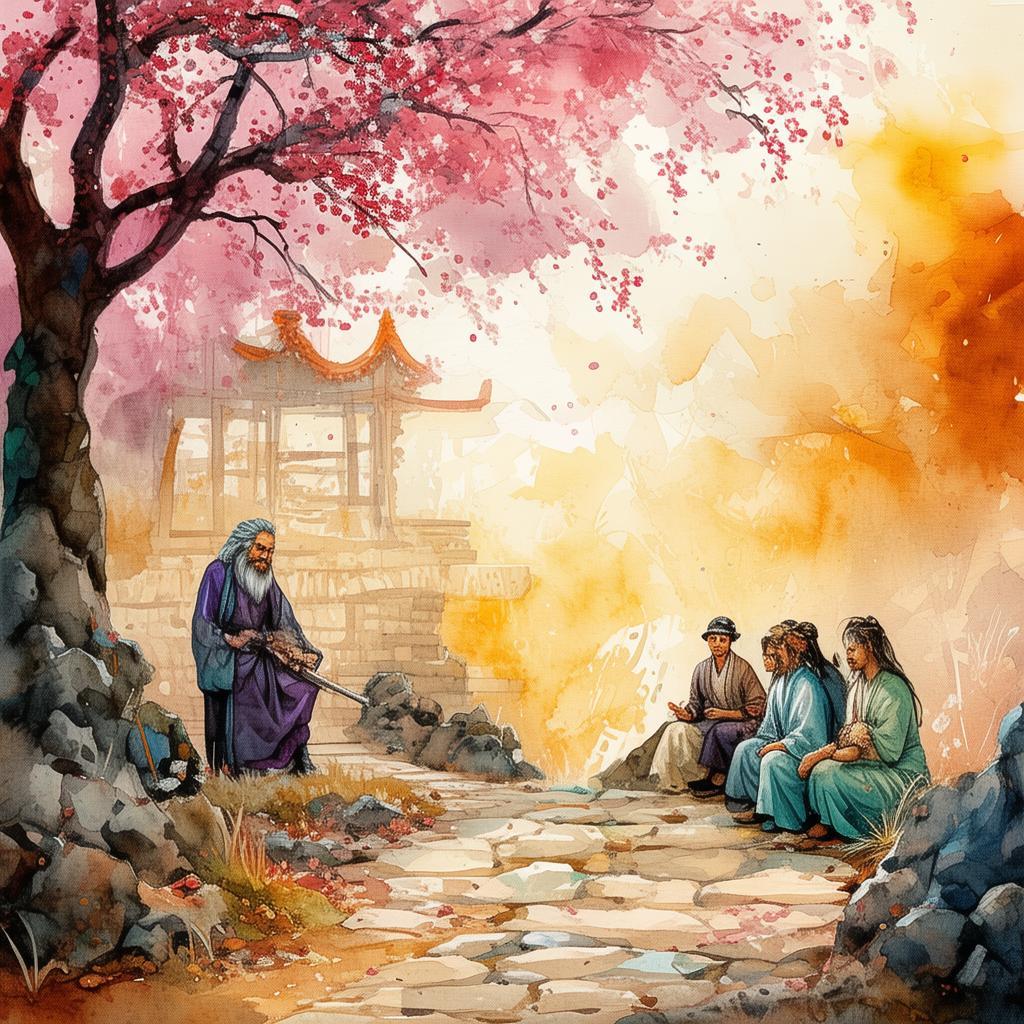
As the enchantment took hold, Ming felt a surge of energy course through his veins. He could see the stars bending to his will, the clouds parting to reveal the celestial realm. But as he reached the peak of his power, a shadow fell over him—a shadow of his own making.
Ming realized that the Fourteen-Heaven's Enchantment was not just a spell, but a moral dilemma. The power it granted him came at a great cost—the loss of his own humanity. He had become a puppet to the enchantment, his every thought and action dictated by the spell's will.
In a moment of clarity, Ming broke the enchantment. The celestial realm crumbled around him, and the power he had so eagerly sought was gone. In its place was a profound sense of peace, knowing that he had not become the master of the universe, but the guardian of its order.
Ming returned to his temple, a changed man. He no longer sought power for its own sake, but for the good of those he loved and the world he had sworn to protect. He used his knowledge and wisdom to heal the land and to bring balance to the cosmos.
The Four-Headed Wizard's Fourteen-Heaven's Enchantment became a legend, a cautionary tale of the perils of ambition and the importance of self-reflection. Ming, the Four-Headed Wizard, became a symbol of hope and a guardian of the celestial order, forever bound to the moral lesson he had learned—the power to change the world lay not in spells, but in the choices one makes in the face of moral dilemmas.
✨ Original Statement ✨
All articles published on this website (including but not limited to text, images, videos, and other content) are original or authorized for reposting and are protected by relevant laws. Without the explicit written permission of this website, no individual or organization may copy, modify, repost, or use the content for commercial purposes.
If you need to quote or cooperate, please contact this site for authorization. We reserve the right to pursue legal responsibility for any unauthorized use.
Hereby declared.




